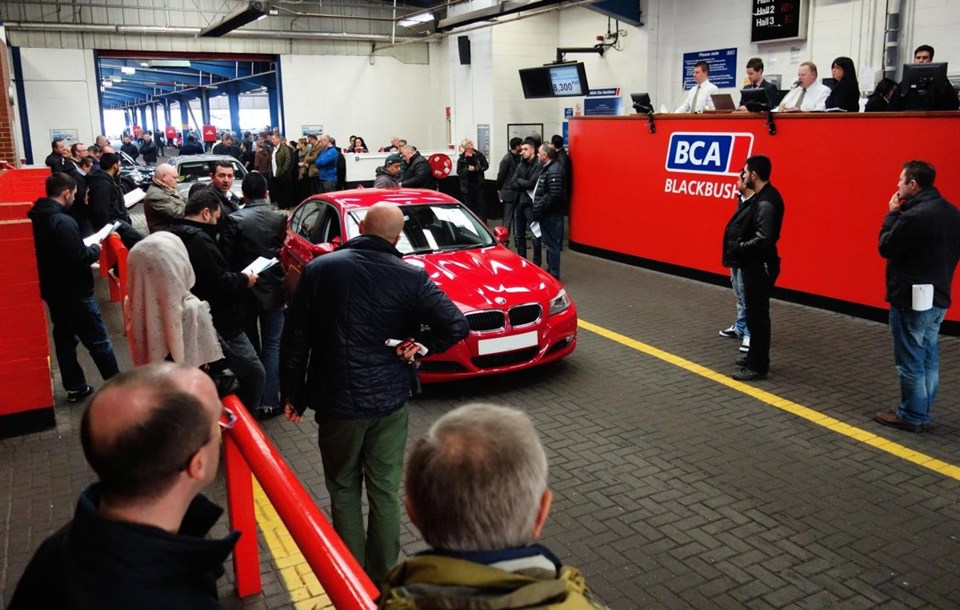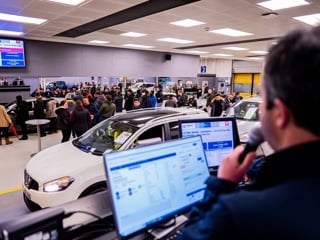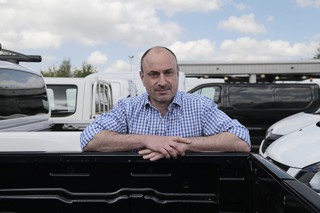An increase in the number of cars going to auction – thanks to the strength of the new car market over the past four years – is casting a shadow over residual values.
Almost two-thirds of delegates, surveyed at last week’s Vehicle Remarketing Association’s (VRA) conference, said they were either ‘pessimistic’ or ‘slightly pessimistic’ about the outlook for the used car market over the next year.
Not surprising, when pricing experts at CAP expect a 15% fall in ‘book’ values by the end of 2015.
However, Dylan Setterfield, senior editor for future residual values (RVs) at CAP Automotive, told delegates that, when the performance of the used car market is taken into account over the past couple of years, depreciation is actually in-line with the long-term average.
“It’s not that this year is particularly bad,” he said. “It’s that everybody’s been doing really well over the past three years when the market’s been relatively benign.”
Setterfield says there are some significant downward pressures on values, with an increasing number of vehicles coming to auction and new car deals affecting nearly new pricing trends.
“Nobody’s going to pay more for a used car than they can get a new car for and that filters through to the different ages,” he said.
He also expects forced registrations – the practice of pre-registering cars by dealers to meet new car sales targets – to continue before easing off towards the end of the year. “That will lead to more depreciation than we’ve seen in recent years,” Setterfield said.
But he added: “Retail demand is still quite healthy, the economy is continuing to improve and a 15% for 2015 is actually in-line with the long-term average. It’s not something we should be particularly concerned about, although we should recognise it could get worse in 2016.”
The last big jolt in RVs came during late spring, 2008. Used car demand was starting to decline and yet new car registrations simultaneously hit a three-year high, buoyed by sales to fleets that had not yet suffered the ill effects of the downturn. With new and used car markets running at different speeds, prices fell faster than at any time in living memory.
However, that record fall in RVs came in the midst of a banking crisis and the current economic outlook for the UK is much more positive, according to Debaprahm De, an economist at Deloitte.
“Right now, if you look at the UK economy’s fundamentals, they look very, very good,” said De. “You’ve a strong consumer and corporate sector.”
But there are other factors presenting risk to the country’s economic fortunes. De told delegates that the UK’s exit from the European Union (EU) would have major consequences to the rate of the recovery.
The London School of Economics said in a recent report that if the UK did vote to leave the EU, GDP would fall by 0.2 percentage points.
“This would be a significant slowdown in growth,” said De, while suggesting big cuts in public spending and the possibility of Greece being unable to repay its debts could also impact growth.
However, he said: “We wouldn’t expect a recession at least in the short to medium term and, if you look at the consensus forecasts from economists, they expect the UK economy to grow at about 2.3-2.5% for the next five years.”
Setterfield continued: “The used car market doesn’t always directly follow the economy, but it certainly is cyclical and there will be another crash at some stage in the future.”
In the meantime, the message to fleet decision-makers from the remarketing industry is the outlook for the used car market strengthens the argument for investing in vehicles refurbishment prior to them being sold at auction.
Jonathan Higham, logistics director at BCA Logistics, concluded: “The case for investing changes quite dramatically as the market softens.
“If people want to get the optimal return for their vehicle, they need to position it in the ‘bullseye’.”
























Login to comment
Comments
No comments have been made yet.